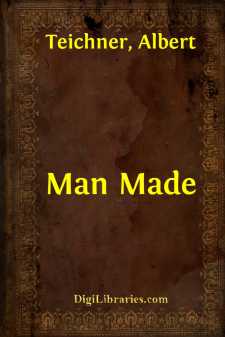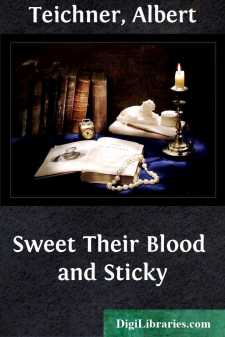Categories
- Antiques & Collectibles 13
- Architecture 36
- Art 48
- Bibles 22
- Biography & Autobiography 813
- Body, Mind & Spirit 142
- Business & Economics 28
- Children's Books 17
- Children's Fiction 14
- Computers 4
- Cooking 94
- Crafts & Hobbies 4
- Drama 346
- Education 46
- Family & Relationships 57
- Fiction 11829
- Games 19
- Gardening 17
- Health & Fitness 34
- History 1377
- House & Home 1
- Humor 147
- Juvenile Fiction 1873
- Juvenile Nonfiction 202
- Language Arts & Disciplines 88
- Law 16
- Literary Collections 686
- Literary Criticism 179
- Mathematics 13
- Medical 41
- Music 40
- Nature 179
- Non-Classifiable 1768
- Performing Arts 7
- Periodicals 1453
- Philosophy 64
- Photography 2
- Poetry 896
- Political Science 203
- Psychology 42
- Reference 154
- Religion 513
- Science 126
- Self-Help 84
- Social Science 81
- Sports & Recreation 34
- Study Aids 3
- Technology & Engineering 59
- Transportation 23
- Travel 463
- True Crime 29
The Junkmakers
by: Albert Teichner
Description:
Excerpt
endell Hart had drifted, rather than plunged, into the underground movement. Later, discussing it with other members of the Savers' Conspiracy, he found they had experienced the same slow, almost casual awakening. His own, though, had come at a more appropriate time, just a few weeks before the Great Ritual Sacrifice.
The Sacrifice took place only once a decade, on High Holy Day at dawn of the spring equinox. For days prior to it joyous throngs of workers helped assemble old vehicles, machine tools and computers in the public squares, crowning each pile with used, disconnected robots. In the evening of the Day they proudly made their private heaps on the neat green lawns of their homes. These traditionally consisted of household utensils, electric heaters, air conditioners and the family servant.
The wealthiest—considered particularly blessed—even had two or three automatic servants beyond the public contribution, which they destroyed in private. Their more average neighbors crowded into their gardens for the awesome festivities. The next morning everyone could return to work, renewed by the knowledge that the Festival of Acute Shortages would be with them for months.
Like everyone else, Wendell had felt his sluggish pulse gaining new life as the time drew nearer.
A cybernetics engineer and machine tender, he was down to ten hours a week of work. Many others in the luxury-gorged economy had even smaller shares of the purposeful activities that remained. At night he dreamed of the slagger moving from house to house as it burned, melted and then evaporated each group of junked labor-blocking devices. He even had glorious daydreams about it. Walking down the park side of his home block, he was liable to lose all contact with the outside world and peer through the mind's eye alone at the climactic destruction.
Why, he sometimes wondered, are all these things so necessary to our resurrection?
Marie had the right answer for him, the one she had learned by rote in early childhood: "All life moves in cycles. Creation and progress must be preceded by destruction. In ancient times that meant we had to destroy each other; but for the past century our inherent need for negative moments has been sublimated—that's the word the news broadcasts use—into proper destruction." His wife smiled. "I'm only giving the moral reason, of course. The practical one's obvious."
Obvious it was, he had to concede. Men needed to work, not out of economic necessity any more but for the sake of work itself. Still a man had to wonder....
e had begun to visit the Public Library Archives, poring over musty references that always led to maddeningly frustrating dead ends. For the past century nothing really informative seemed to have been written on the subject.
"You must have government authorization," the librarian explained when he asked for older references. Which, naturally, made him add a little suspicion to his already large dose of wonder.
"You're tampering with something dangerous," Marie warned. "It would make more sense for you to take long-sleep pills until the work cycle picks up."
"I will get to see those early references," he said through clenched teeth.
He did.
All he had needed to say at the library was that his work in sociology required investigation of some twentieth century files....





